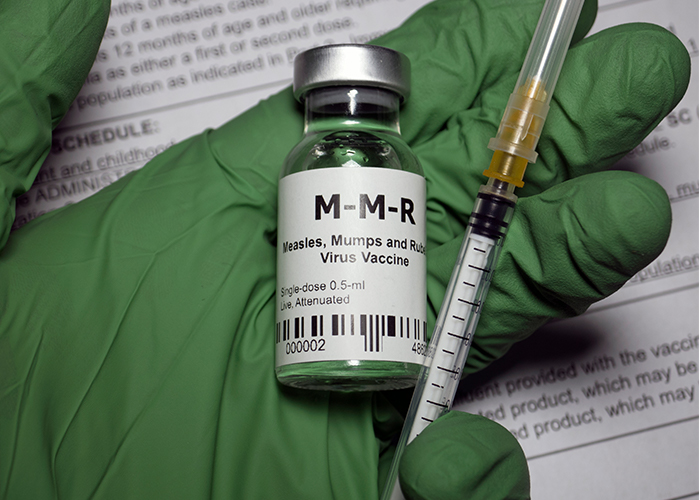Bookmark
Record learning outcomes
News
Stay up to date with all the news, learning and insight in the world of pharmacy.Follow this topic
Parents urged to check children’s MMR records
In News
Follow this topic
Bookmark
Record learning outcomes

Parents of children starting primary school are being urged to check their immunisation records as Public Health England warns that one in seven five-year-olds may not be fully up-to-date with some routine immunisations, with the figure rising to around one in four children in London.
The warning comes as the World Health Organization says that measles has returned to four European nations previously seen as free of the illness. The disease is no longer considered eradicated in Albania, the Czech Republic, Greece and the UK.
Around 680,000 five-year-olds start school in England each year according to Department for Education figures. Based on percentage uptake from latest vaccination coverage figures PHE estimates that:
- Over 30,000 (around one in nineteen) five-year-olds may still need to receive their first dose of MMR, leaving them significantly more at risk compared to pupils who are fully vaccinated
- Around 90,000 (or one in seven) five-year-olds in England may still need to receive their second dose of MMR vaccine. Almost 30,000 of these children are in London
- Around 100,000 (or one in eight) five-year-olds in England may still need their 4-in-1 pre-school booster that protects against diphtheria, whooping cough, tetanus and polio
This means that more than five per cent of five-year-olds are starting reception year having not received any MMR.
In the UK, dose 1 of the MMR vaccine is usually given to infants at around 12 months of age. A second dose is given before school, usually at 3 years and 4 months of age, to ensure best protection. Two doses of MMR in a lifetime are needed for a person to be considered fully protected.
The 4-in-1 pre-school booster is also usually offered at 3 years and 4 months of age and protects against diphtheria, whooping cough, tetanus and polio
In England, 301 new measles infections were confirmed in the period between April and June 2019 compared to 231 in the first quarter of 2019. Cases were reported in all regions except the North East. Most cases (266) were in unvaccinated individuals aged 15 years and over.
